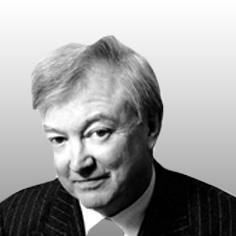How can an expert witness be unbiased when hired by one party? Reader, behold, a tale of an expert witness too honest for his own good

Do you fancy being an expert witness in the business of construction industry disputo-mania? Pays well. Have a look at some recent good stuff produced by 17 members of the Society of Construction Law (SCL). It’s a working party teasing out views about experts from various professionals in construction disputes. To date, there are 75 formal written responses; 60 questions still linger, looking for answers.
It doesn’t take long before the commentary gets into the issue of the expert’s “independence”, “impartiality”, “the duty to help the court, the arbitrator, the adjudicator”, and eventually the nasty obligation of the expert to tell his client, his customer, to go to blazes when he asks the appointed fee earning expert to trim and tailor the expert report, opinion or evidence. Yes, nasty because it is the devil’s own job to tell your paymaster you will not obey his instructions, not tell the story or express the opinion that the client wants said. One other person to give a jolly good talking to, is that little fellow inside your expert head, who is a team player and shouts at you: “Help your team win.”
And let me also have a word in the ear of the 17 folk on the SCL working group. Please take on board a number 18 person - a psychologist. Ask a mental gymnast if it really is true that an architect expert, QS, engineer, geo-whatsit, structural, mechanical, or surveyor of this or that, can join-in with one side in the dispute, and remain, or become, non-partisan?
Here is a story. I am not going to tell you the eminent architect’s name. Just to say that I got to know him and found him utterly reliable, straight as a die and a wag. His career as an expert witness was seriously wounded when a judge lambasted him for producing an expert report labelled in court as a “Partisan tract”. During the course of the trial on a construction industry dispute he was asked in cross-examination if his lengthy detailed expert report was founded on a principle, which he had enunciated in a paper he had previously written about expert witnesses.
It doesn’t take long before commentary gets to the issue of the ‘Impartiality’, and the nasty obligation to tell a client to go to blazes when he asks the fee earning expert to trim and tailor the expert report
He had said, “How should the expert avoid becoming partisan (Dear Reader pause … so far so good …) in a process that makes no pretence of determining the truth (The “process” means the court/trial) but seeks only to weigh the persuasive effect of arguments deployed by one adversary or the other (Think about that).”
Our architect expert went on “the man who works the Three Card Trick is not cheating, nor does he incur any moral opprobrium, when he uses his sleight of hand to deceive the eye of the innocent rustic (He is saying the Three Card Trick is only a game … fun, an amusement) to deny him the information he needs for a correct appraisal of what has gone on. The rustic does not have to join-in: but if he chooses to, he is fair game (Watch out for the next part).”
He went on: “If by an analogous ‘sleight of mind’ an expert witness is able to present the data that seems to suggest an interpretation favourable to the side instructing him, that is, it seems to me, within the rules of our particular game (Judge is now blowing a gasket), even if it means playing down or omitting some material consideration (Oh hell!), concealing what is true (Ouch!) does indeed suggest what is false; but it is no more than a suggestion, just as the Three Card Trick was only a suggestion about the data, not an outright misinterpretation of them (By now we have an incandescent judge).”
The judge now had his say: “No doubt it is currently fashionable to say that our legal system makes no pretence to determine the truth. I accept that some people not only say it but also believe it. If it were true that the expert witness here would be right in thinking that anything short of outright misrepresentation is permissible in an expert’s report and that not only the other party but also the person trying to decide the issue, the ‘Rustics’ are fair-game. On reflection, if the expert here were right, I am not sure that even outright misrepresentation should be avoided. If litigation is to be conducted as if it were a game of Three Card Trick, what is wrong with having a couple of aces up your sleeve?”
“The whole basis of this expert’s approach to the drafting of an expert report is wrong. The function of a court of law is to discover the truth relating to the issues before it. In doing that it has to assess the evidence adduced by the parties. The judge is not a rustic who has chosen to play a game of Three Card Trick. He is not fair game. Nor is the truth.”
Tony Bingham is a barrister and arbitrator at 3 Paper Buildings, Temple



























No comments yet